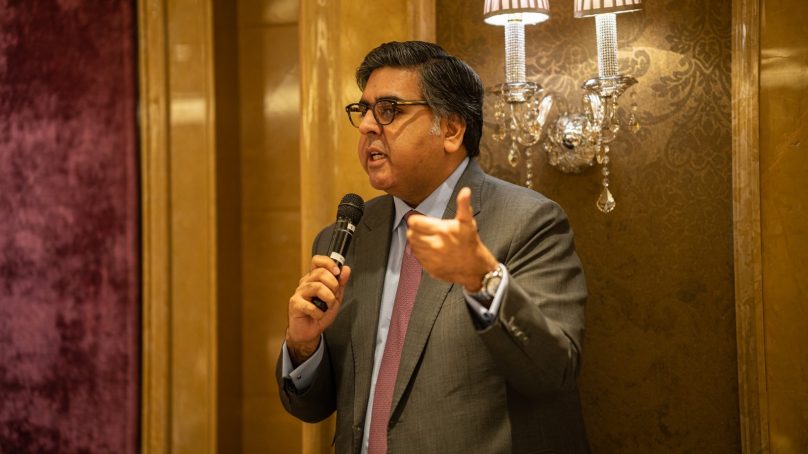We caught up with Kashif Khalid, IATA’s regional director for the MEA, to discuss everything related to travel.
What are the latest travel trends?
According to IATA’s July figures, global air traffic has recovered to nearly 96.1 percent of pre-pandemic levels, with Middle Eastern airlines leading the global rebound. Middle Eastern airlines have fully recovered their international passenger traffic levels, which are now 17.2 percent above pre-pandemic levels. Routes between the Middle East and other regions have experienced a surge in traffic. Predominantly led by the growth of East-West traffic from Europe, India, Pakistan and the greater MENA region, as well as the re-emergence of China and Asia Pacific. What we’re noticing is that people love to travel. Airlines in the region are stepping up operations, boosting workforces and adding capacity to meet the global surge in travel demand that has continued despite varied economic headwinds. We’re also seeing airlines and travelers preferring new destinations or those that have easier visa and facilitation programs.
What are the most popular destinations in the Middle East?
Dubai, Doha and Abu Dhabi feature prominently on the list of preferred travel destinations. In addition to the sustained growth for both leisure and business in the Kingdom of Saudi Arabia, namely Riyadh and Jeddah. Cairo (Egypt) has witnessed high demand from expats (VFR). Sharjah, Kuwait and Bahrain are also witnessing strong growth thanks to intra-Middle East travel and cross travel to the Indian subcontinent.
What are the latest technologies shaping and navigating the new era of travel?
Some of the key technologies shaping the new era of travel are those geared toward self-service and contactless solutions. Throughout the pandemic, people became comfortable with contactless services. Passengers want the ability to streamline their travel process using digital applications and solutions. Furthermore, many ME airports and airlines offer digital solutions to passengers at various touchpoints throughout the travel journey. It also helps airports manage processing efficiency. Passengers also want to be able to track their bags; the industry is working on solutions to offer such a facility. Lastly, we’re seeing the growth of off-airport processing for journeys, including solutions for home or office, as well as hotel check-in.
What is the role of sustainability in travel?
Increasingly, sustainability is in the spotlight. Airlines and the air transport industry are committing to net-zero emissions in the decades to come. Travelers are making informed decisions about their journey; they want to be able to offset their carbon emissions. Sustainability is now an essential part of the journey for many travelers.
















